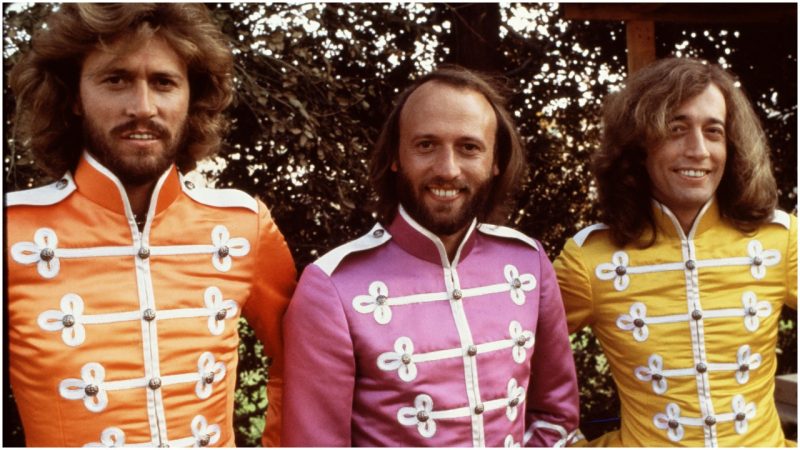The Bee Gees left a lasting impression on the charts, across a variety of musical genres. Yet it might never had happened were it not for a happy accident which set them on the course for superstardom.
Barry, Maurice, and Robin Gibb were young children living in the suburbs of Chorlton-cum-Hardy in Manchester, England. According to the New York Times 2012 obituary of Robin, “the family lived on the edge of poverty. Their father, Hugh, a drummer and bandleader, encouraged his sons to sing. Their mother, Barbara, was also a singer.” As far as the family was concerned, music was a constant companion.
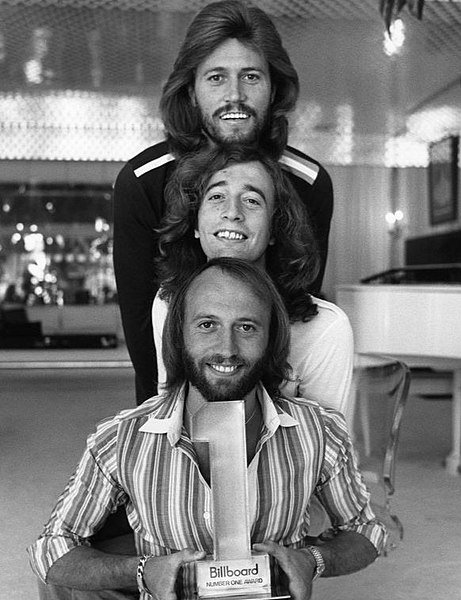
Originally from the Isle of Man, the brothers would soon cross the globe to Australia with their parents, sister Lesley and baby brother Andy. However, in this relatively brief window of time (1955 – 58), a fledgling version of the Bee Gees was born.
They weren’t called that at the time, however. Initially, the handle they went by was The Rattlesnakes. Their destination? The local movie house. “The neighborhood cinema round the corner, owned by the Gaumont concern, was the place where the young kids watched a movie on Saturday,” writes the Gibb Service International website. “During the break kids could lip-sync to their favorite records.”
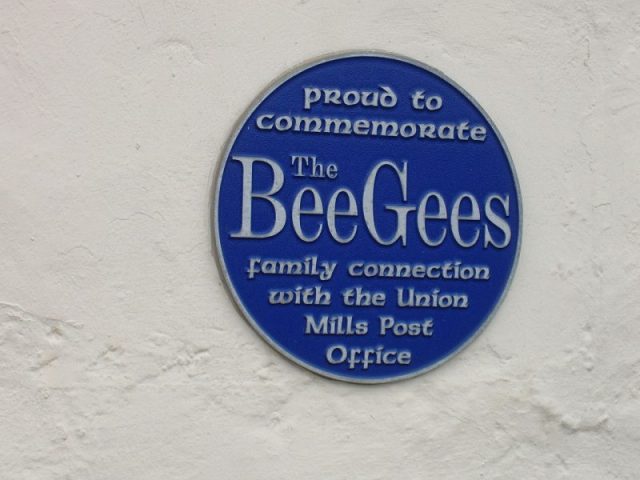
Together with pals Paul Frost (drums) and Kenny Horrocks (who played bass using a tea chest) they went down to chance their arm. It was the run up to Christmas and the Rattlesnakes had been prepping their debut performance for days. Then, “the next Saturday, with a breakable 78 r.p.m. record under their arm, they left for the theatre.”
There might well have been ice on the ground in Manchester at that time of year. Either way, a group of eager young boys and some vulnerable vinyl made bad bedfellows. Whatever was on the disc wasn’t going to be played that night — it broke. So they decided on a swift change of plan. The lads sang and played live.
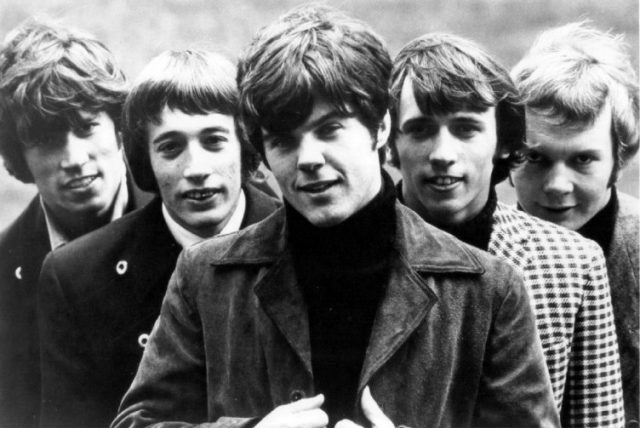
This gutsy move not only received a good reception, it started them on the road to success. “The next day there was a picture of them in the paper,” the site says. “Now they got a taste of stardom, they started to perform on street corners regularly.”
Related Video: The Forgotten Beatle – Whatever Happened to their Early Drummer Pete Best?
https://youtu.be/JaujG9rFXxA
From the mid-Sixties onwards, the trio began recording albums and releasing hits. They also had a new name — the Bee Gees. Accounts differ on how this came to be. While the initials of “the Brothers Gibb” is a popular explanation, it was reportedly coined by the Australian DJ Bill Gates who called them the “BGs”. He’d met the Gibbs by way of Bill Goode, a speedway driver, and promoter who hired the brothers to perform trackside. The Gs reportedly come from Gates, Goode and Barry Gibb, while the E’s arrived later!
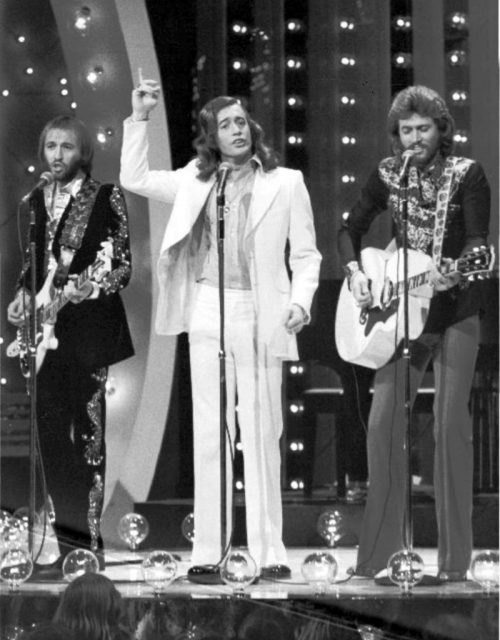
Hits included Massachusetts (1967), I’ve Gotta Get A Message To You (1968), Tragedy (1979) and You Win Again (1987). At the height of their powers they were supplying disco dancefloor fillers for the iconic movie Saturday Night Fever (1977) such as “Stayin’ Alive” and “Night Fever”, though they weren’t particularly invested in the world of medallions and mirrorballs.
Quoting Robin from 2010, the New York Times says, “We always thought we were writing R&B grooves, what they called blue-eyed soul. We never heard the word disco; we just wrote groove songs we could harmonize strongly to, and with great melodies. The fact you could dance to them, we never thought about.”
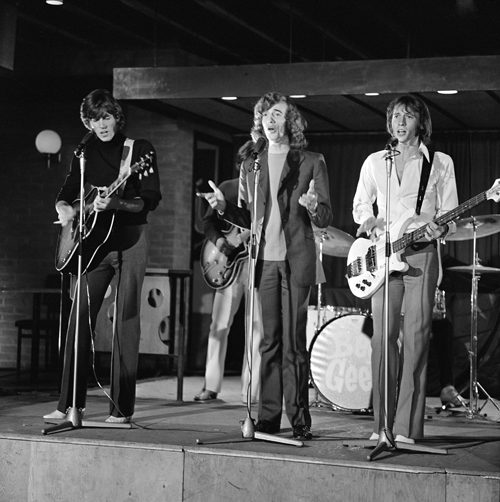
Their focus on emotions and distinctive harmonies emphasized a strong family bond. Barry is the last surviving member of the gang and continues to record. His last solo album, In The Now, was released in 2016.
A 2009 interview on the Roxborogh Report site with Gibb reveals the sense of humor that always kept them together. He said, “they did break the mould with Robin, but they also broke the mould with Mo, you know, and I just think they broke a number of things with me! (laughs) … We were The Goons, and the three of us all took those roles in all forms of life. Whether we were onstage or not, we were Spike Milligan, Peters Sellers and Harry Secombe.”
Were it not for that fateful night in Manchester, the world may never have watched this relationship unfold.
